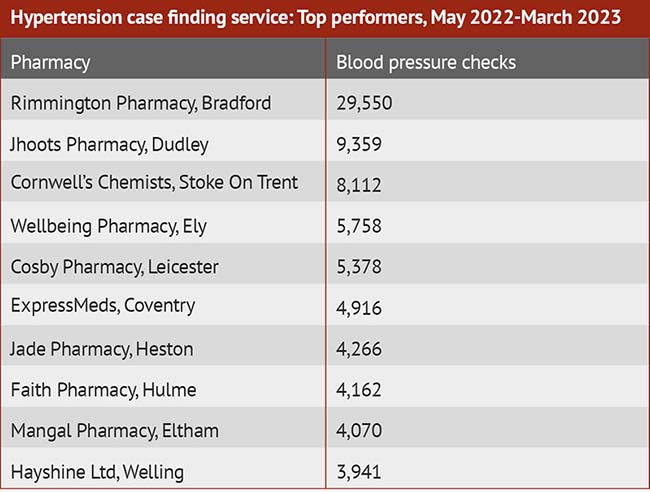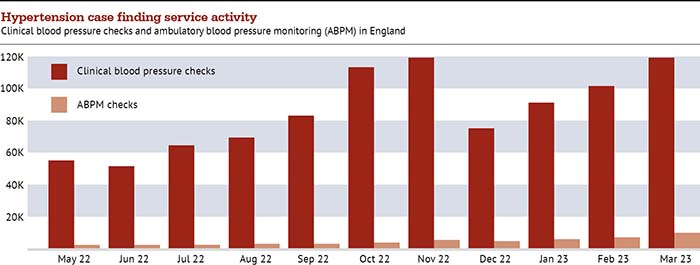In News
Bookmark
Record learning outcomes
The Community Pharmacy Hypertension Case Finding Service launched in October 2021 with the principal aim of identifying patients aged 40 and over with undiagnosed high blood pressure (the full eligibility criteria cast a somewhat wider net, with pharmacies allowed to provide the service to certain adults aged under 40 at their discretion).
This is an important clinical ambition. Around one in three adults in the UK has high blood pressure, with half of these not diagnosed and/or not receiving treatment for the condition. The NHS estimates that in England alone, there are 5.5 million people whose hypertension has not yet been diagnosed.
With the community pharmacy sector increasingly uniting around the message of accessibility, convenience and clinical skills, this service seems an ideal vehicle for improving patient outcomes. Changes introduced in April this year mean that pharmacy technicians are now able to provide the service, potentially opening up even more access opportunities.
There are financial incentives for participating contractors: a set-up fee of £440, plus service fees of £15 per in-pharmacy blood pressure reading and £45 where a patient with a high reading (between 140/90mmHg and 180/120mmHg) is fitted with an ambulatory blood pressure monitoring (ABPM) device.
There are also incentive fees for pharmacies that reach a threshold of ABPM activity; in the current financial year, this is set at £400 for delivering a minimum of 20 ABPM checks. Patients found to have a very high clinic reading – 180/120mmHg or higher – are referred to an urgent same-day appointment with their GP, or to A&E if they have acute symptoms such as headache, chest pain or palpitations.
It appears that uptake of the service has been rising steadily. According to PharmData, as of March this year, over half of England’s pharmacies (6,646) had provided it, with some achieving impressive numbers of blood pressure checks in the period May 2022 and March 2023 (see performance table above).
In the month of March 2023 alone, 119,913 readings were carried out, up from 55,464 last May. November saw a similar peak (119,583) before a dip to 75,566 in December followed by month-on- month climbs.
While the number of patients who go on to be loaned an ABPM device has also risen (from 2,465 in May 2022 to 10,100 in March this year) they still represent a relatively small fraction of all consultations delivered as part of the service. Much of this discrepancy is to be expected, as blood pressure checks are offered on an opportunistic basis to consenting patients, and the low threshold criteria for triggering the incentive payments reflects this reality.
However, the gap may close somewhat as pharmacies become increasingly familiar with the service, and factors like better access to ABPMs for pharmacies could also make a difference to these numbers.
Community Pharmacy England was asked for its view, but said it could not comment as the service is the subject of ongoing negotiations with the Department of Health and Social Care and NHS England.



